|
Lent is not a diet program. Yes, the Church recommends the ascetical practices of prayer, fasting, and almsgiving. These, though, are meant to help us love God and neighbor more fully. Pope Francis in his homily for Ash Wednesday offered this consideration: “Lent is a journey that involves our whole life, our entire being. It is a time to reconsider the path we are taking, to find the route that leads us home and to rediscover our profound relationship with God, on whom everything depends. Lent is not just about the little sacrifices we make, but about discerning where our hearts are directed. This is the core of Lent: asking where our hearts are directed.” Where is your heart directed? Is it a divided heart? It is easy to compartmentalize. Or so it seems. Eventually, trying to live life in two directions tears us apart. “Our entire being” needs to be engaged, not simply part. We can pray, fast, and do almsgiving, but still be unconverted within. These acts are a means to an end, not an end in themselves. These “little sacrifices” should sharpen our minds and open our hearts more fully to a life directed toward God and neighbor. If they are done simply for us to feel a sense of accomplishment or as a test of our will, then their focus becomes about us. How do we go forward? By realizing that “everything depends” on God, not on us. Once we do, and cooperate more fully with the grace of Christ, our hearts will be undivided, united in love with God and neighbor. May the charity of Christ urge us on! For more resources to accompany you during your Lenten journey, please click here.
0 Comments
This Lent looks a little different than it has in past years for many reasons. With a little boy starting to walk, it feels like things are changing fast at times and very slowly at others. I’m looking towards speeding things up to get to new milestones like running and talking, but also praying time can stand still enough to savor precious moments and little giggles. In Lent now, we are waiting for Easter and likely wanting to speed through this time of personal reflection, penitence, and prayer. Maybe if we try to slow down and take a moment to reflect, we’ll discover some time we can put into our relationship with God in a meaningful and intentional way.
This Sunday marks the Second Sunday of Lent and there are some really poignant readings to note for our hardened selves. I think they all tell of a hope and light at the end of the tunnel for us in this dark and restless time. The second reading especially tells us to not give up because God has already provided: Brothers and sisters: If God is for us, who can be against us? He who did not spare his own Son but handed him over for us all, how will he not also give us everything else along with him? Who will bring a charge against God’s chosen ones? It is God who acquits us, who will condemn? Christ Jesus it is who died—or, rather, was raised-- who also is at the right hand of God, who indeed intercedes for us. (Rom 8: 31b-34) This line, “If God is for us, who can be against us?” tells us so much about our God. He is always on our side, no matter what. If God is for us, we can build up a broken relationship with him. If God is for us, we can consider our sins in the Sacrament of Penance and be reconciled. If God is for us, we can slow down and take a moment to breathe in and out in mindfulness. If God is for us, we can have the strength to carry on through this pandemic, perhaps alone physically, but never truly alone. We are never truly alone or abandoned because at the end of this Lenten tunnel, Christ is there waiting for us with open arms and a tissue to wipe our tears. There is beauty in the waiting, and we’ll probably regret it if we don’t allow ourselves to vulnerably open our hearts and our lives to Christ. So how can we build our relationship with God? How do we prepare our hearts for Easter, while still savoring this waiting and dark time before Christ comes? When we are fearful, where can we turn? When we feel exhausted and worn out, how do we go on this Lent? Through prayer. I teach my students about prayer during Lent because it can be the absolute best tool we have as Christians. Saint Vincent Pallotti knew this to be true, saying, “The best method of private prayer is that which the spirit of the person finds easiest and most fruitful.” He totally understands us! In his wisdom, Pallotti sought to humbly serve God through his actions and be an apostle journeying with others and teaching them about God’s eternal Love. Private prayer is so important. It can be as simple as we want it to be or as complex. We can talk to God out loud, in our hearts, through journaling, or in memorized prayers, but private prayer is essential to our spiritual lives. In the moments in which you want to slow down, try praying to God. Each time you think about the next thing that is coming and how you just need to get through it, pray. Ask God to remove your impatience and replace it with humility. Humbly putting ourselves aside during Lent can be a fruitful way to grow closer to God. Intentionality and a few personal moments are the only things we really need this Lent, for if God is for us, who could be against us? For more resources to guide you through your Lenten journey, please click here. For more resources on prayer, please click here. “Remember the days past when, after you had been enlightened, you endure a great contest of suffering. At times you were publicly exposed to abuse and affliction, at other times you associated yourselves with those so treated. You even joined in the sufferings of those in prison and joyfully accepted the confiscation of your property, knowing that you had a better and lasting possession. Therefore, do not throw away your confidence, it will have great recompense. You need endurance to do the will of God and receive what he has promised. ‘For, after just a brief moment, he who is to come shall come, he shall not delay. But my just one shall live by faith, and if he draws back I take no pleasure in him.’ We are not among those who draw back and perish, but among those who have faith and will possess life.” -Hebrews 10:32-39 We are living in an extremely tumultuous time. For over a year, a virulent sickness has swept over the world and caused havoc with our health, our economies, and the very way we relate to one another. It has separated us from friends, co-workers, extended family, and our church community, to name a few. In battling its transmission, we have been forced into isolation—severely limiting gatherings, celebrations together, and even sharing hugs. We have been stretched beyond our normal mode of living and the equilibrium of our lives has been disturbed, with no end clearly in sight. On top of all this, we have experienced political and social unrest – polarized groups rising against one another, causing great division instead of building unity. For any individual, these circumstances could easily defeat us and have us succumb to despair. I think of the Marty Haugen song many of us sing every year during Advent: “For you, O Lord, my soul in stillness waits, truly my hope is in you.” It resounds in my mind and heart as we traverse through such unsettling circumstances. Amidst all the unknowns and unrest, I have witnessed a beautiful vision that overrides all the devastation of the circumstances we are in. I have seen people sacrifice to care for others and people coming together to celebrate the joy of life in trying situations. I have witnessed God living and walking among us through the selfless individuals choosing to stand tall in faith and do all things in love. As Christians we are taught “God is love.” We were created out of love, for love. We are part of God’s great creation and we belong to Him. He guides, instructs, and protects us always. What a magnificent testament to hope in! We pray in our Creed: “I look forward to the resurrection of the dead and the life of the world to come.” This is part of what we profess at Mass before we enter into the liturgy of the Eucharist – which is the source and summit of our faith. We receive the Body, Blood, Soul and Divinity of our Lord to nourish us in body and spirit. This profession of faith, this gift of communion, allows us to walk through all the adversities of life as joyful people who understand our hope lies not in this world but in heaven, forever. This living hope comes from being nurtured by the stories from Scripture, being taught prayers and devotions, receiving the sacraments of Reconciliation and Eucharist frequently, singing hymns of praise and thanksgiving, and practicing acts of kindness daily. What an ironclad defense we have against any evil that would afflict our body or soul! How beautiful it is that as Christians we can be united together in faith wherever we are. This is how I have remained steadfast in hope and overcome fear during these trials that continue to badger us. Surrounding myself with pictures of the Holy Family, the saints, the crucifix, listening to Christ-centered music, praying novenas and prayers, attending Mass often, and sitting in the quiet and listening for God to speak to me are all ways I actively participate in being a person of hope. Even more simply, just keeping my home clean and neat makes it a peaceful sanctuary where I can experience God’s presence. I have no control over the things of this world that loom large over me, but that is okay. As long as I adjust my spiritual armor and remain grounded in Christ, I have every reason to walk in hope, joyously, no matter the circumstances. My husband I adopted the habit of praying Saint Patrick’s Breastplate each morning before going out into the fray and it has born much good fruit in our lives. I offer it to you as another tool to assist you in the battle against evil. We are children of light, born of love and destined for heaven. We belong to Him. He made us a community and all around the world, individually and in groups, we profess our faith boldly, we share His message of love constantly, and we support one another in solidarity of His kingdom. It is our job to remain in Him and He will supply all the grace needed to walk tall in hope. As St. Teresa of Avila said: ‘God withholds Himself from no one who perseveres.’ For more resources to guide you through the COVID-19 pandemic, please click here. For more resources on prayer, please click here. It’s hard to believe that COVID-19 began to take hold of the Mid-Atlantic region of the United States just two weeks after Ash Wednesday 2020. As we approached Holy Week last year, dry jokes abounded as to whether or not we had to continue to give things up during Lent as COVID-19 had already forced us to give up so much. Well, those jokes have returned a year later as Ash Wednesday is just around the corner and the pandemic is still very much a reality in our lives. Lent is a period of the Catholic Big Three: prayer, fasting, and almsgiving. This preparatory and penitential season helps to prepare us for the glory of the Resurrection. Most Catholics know the drill: you give something up for Lent (and hopefully take something on as well) as you have Easter Sunday circled on your calendar. But last year threw us all for a loop. Used to giving up chocolate or swearing, we were forced to give up worshiping in Church, seeing loved ones, going to school, and so much more. In the months since, almost every person knows someone who has contracted or even died from the COVID-19 virus. Though Lent ended on Easter in 2020, it feels as though it still hasn’t quite ended. We’ve abstained from holiday gatherings, birthdays, and so much more than we’d ever planned, even during the Lenten season. Lent, though, is the perfect lens through which to view the COVID-19 pandemic. Even during this penitential season, we don’t forget the glory of the Resurrection. Yes, the “A-word” and the Gloria are omitted from the Mass. Sure, we focus on the preparation and the penance, but we still receive and glorify our Lord. Even though we are without so much now in the Lent-like COVID-19 pandemic, we still praise the Lord. The last line of Psalm 150 reads, “Let everything that has breath give praise to the Lord.” Not just during the liturgical seasons of Ordinary Time, or Christmas, or Easter, but at all times, everything with breath should praise the Lord. This continues even now, with so much going wrong in our world. With so much suffering and pain—from which none of us are immune—there is still reason to praise the Lord. Baptisms and First Communions still occur. Marriages are still celebrated. Four of my closest friends were married this past summer—which brings new context to the promises of commitment in sickness and health. Even when there has been suffering, God has still managed to bring good out of it. When my own grandfather passed away in October, I was able to spend the last few days before his death with him. This was a time whose memory I cherish, and time I’m not sure we would’ve gotten if he hadn’t gone to his eternal rest. As I’ve gone through my own sickness over the last few months, I’ve made Psalm 150 my mantra of sorts. My life hasn’t been perfect, but God has ordained it and he has sustained it. He has given me breath and life, and for that I praise him. As Matt Maher says in his song Alive and Breathing, “Let everything praise the Lord, in the working and the waiting…in the dying and the rising, let us praise the Lord!” With Lent coming up, and COVID still wreaking such havoc in our world, let everything that has breath praise the Lord! For more Lenten resources, please click here. For more resources to help you navigate COVID-19, please click here.
For the last two years, my parish has hosted a virtual Lourdes pilgrimage led by the Lourdes Volunteers. This prayerful experience went beyond my general understanding of Mary’s 18 apparitions to St. Bernadette in southern France during 1858. By attending this virtual pilgrimage, I felt the Virgin Mary’s call to learn more about her, and through her, to grow closer to God. A few months after attending my first virtual pilgrimage, I completed a Marian consecration with several friends. Thankfully, the team of volunteers with the Lourdes Volunteers is still hosting virtual pilgrimage experiences via broadcast on the Feast of Our Lady of Lourdes on February 11. We often think of the physical healing miracles at Lourdes, but emotional healing is also an important part of the message of Lourdes. When I attended these virtual pilgrimage sessions, the lessons of sacrifice that Our Lady shared with St. Bernadette stood out to me most. “I do not promise you happiness of this world, but of the next,” Mary said to St. Bernadette. Mary reminds us that uniting our sufferings to Jesus’ sufferings on the cross is where we find true joy. I don’t know about you, but that’s a lot easier said than done! Prayer is transformative and plays a huge part in helping get us through our earthly sufferings. Choosing love helps make sacrifice endurable. St. Bernadette taught us that suffering passes, but having suffered remains eternally. The physical and emotional sacrifices of this world are temporary compared to the glory of everlasting life in heaven with God. St. Bernadette famously said, “One who loves does not notice their trials, or perhaps more accurately, is able to love them. Love without measure.” At first, this not noticing of trials seems idealistic. But then I realized that our trials are made more bearable because of our love for another. I think of how mothers go through physical pain and exhaustion for their newborn babies, or how a father stays up at night with a sick child. I think of how husbands and wives sacrifice individual wants for the needs of each other. I think of how a friend puts their own struggles aside to help another friend going through a deep, rough patch. We can look to Mary and Jesus as examples of how to love while enduring sacrifice. “She spoke to me as one person to another,” said St. Bernadette of Mary. This conversational nature of Mary and St. Bernadette’s relationship shows us that we can easily speak to her and ask for her prayerful intercession as our mother. At Mary’s appearances to St. Bernadette, she revealed herself to be the Immaculate Conception. By allowing God to forgive us of our sins and conduct his work inside us, we are becoming more “immaculate” witnesses to God in the world. Mary emphasized the need for penance and prayer, not just for ourselves, but for the healing of all. While our travel is limited during this Covid-19 pandemic, we can still embody St. Bernadette by imagining the grotto and going there in our hearts to make a pilgrimage. Our Lady of Lourdes, pray for us. St. Bernadette, pray for us. As someone who has always looked forward to the next challenge or opportunity both personally and professionally, I haven’t been very skilled at pausing and reflecting on the past. Writing this passage challenged me to settle myself enough to reflect on my journey as a Catholic father, and for that I am thankful as it contains many opportunities for me to continue to grow as both a Catholic and a father. My journey as a Catholic father is closely intertwined with my Catholic faith. My mother was a practicing Catholic and was always engaged in parish life. She also was a Catholic school teacher for many years. As a result, my sister and I were raised Catholic. In my case, this included attending Catholic school during my primary years and attending a Catholic university. I, like many other young Catholics, made my way to becoming an adult in the Catholic Church through Confirmation. While residing at home led by my mother, my sister and I were actively involved in our local parish. My first set of real-life religious decisions came when I went away to college at the University of Notre Dame. At this point, my religion did not feel like it was my own. It felt like it was my mother’s religion and my connection to it was not as clear. During my years at Notre Dame, a campus with over 150 venues in which to pray or attend Mass, somehow I managed to not regularly attend Mass. During my college years, I met my wife of now 32 years. She, like my mother, was an active Catholic who felt sure of her connection to her faith. During our early years of marriage, while she strongly modeled the Catholic faith with regular Mass attendance and engagement in parish life, I once again managed to get by with a part-time Catholic mentality while still searching for how Catholicism would be “my faith” rather than my mother’s or my spouse’s. But my wife and my mother were role models who kept me close to the Catholic Church during this period of uncertainty and questioning. After being married for just over 3 years, my wife and I conceived our first child. After she was born, we immediately began preparations for our daughter’s first step into the Catholic faith with the sacrament of Baptism. During this process, I had a real awakening: many of the questions I had been asking regarding my faith suddenly seemed selfish and self-serving. Although I felt I was prepared to be a father, I felt helpless in many ways to control the events that would impact my daughter throughout her life. It became clear to me that our daughter, and a few years later our son, would certainly need the love and support of their parents. However, they would also need something more—something that would sustain and anchor them throughout their lives regardless of the circumstance or challenge. This was faith, the Catholic faith. Not only would our children need this faith, but so would I. The blessing of fatherhood for me came with many gifts. My Catholic faith had become planted in some very good soil and, as a result of my fatherhood, began to grow. As our children grew up and became adults, my journeying with them as a father, husband, Catholic, and business leader has had its challenges. There was always an endless stream of competing day to day priorities. It was disappointing when, despite all our best efforts to keep all the balls in the air, inevitably some would drop. Reflecting back, it was being present at those moments that gave my fatherhood and faith deeper meaning—when our children wanted to reach out for support, advice, a kind ear, or just to talk about their journey through both life and faith. In some cases, my children might not see the connection between their life journey and their faith journey, as I certainly didn’t a number of years ago. This provides a great opportunity as a father to create these connections for my children as they become full participants in our society and ultimately leaders in their communities, parishes, and professional lives. Having grown in my faith throughout my vocation as a father, I hope that I can be for my children the same role model of a loving, thriving Catholic faith that my mother presented to me. As a Catholic of African descent, I am honored and privileged by this unique opportunity to discuss the beautifully diverse Catholic Church throughout the world, the significant contributions that those of every ethnic background have made in building up the Body of Christ, and how we can arrive at racial healing and reconciliation. The Catholic Church is made up of the faithful of every ethnic background, the young and old, both male and female, and several distinct cultural settings. In other words, we Catholics come from every realm of the human experience, and are united in our baptismal fidelity. As a black Catholic, my religious heritage spans all the way back to biblical times, including when Saint Philip the Apostle brought the Good News of Jesus Christ down into Ethiopia (see Acts:8:26-40). Both African and African-American saints, including those in this extensive list from Catholic Online, have enriched the Church for nearly two millennia. Likewise, the modern era features some black candidates for sainthood, including those appearing in the United States Conference of Catholic Bishops’ webpage titled “On the Path to Sainthood: Leaders of African Descent.” I encourage everyone of good will to read through the biographies of the figures listed in both of those sites, in order to gain a greater appreciation for the manifold ways that they have built up the Body of Christ, per the Apostle Paul’s Letter to the Romans: “For as in one body we have many parts, and all the parts do not have the same function, so we, though many, are one body in Christ, and individually parts of one another” (Romans 12:4-5). The calendar year 2020 brought numerous challenges to those of every faith, both in the United States and around the globe, as the world confronted the COVID-19 pandemic and matters of racial discord were brought to the fore in the United States. I think often of how far we have come as a nation in terms of fostering peace and harmony between people of every ethnic background here in the United States. For instance, my father, Charles McClain, Sr., who was born in Durham, North Carolina, in 1936, and lived under segregation well into his early adulthood, probably did not fathom during his youth that he would one day see three of his sons (my brother Eric, my brother Jaris, and me) go on to marry white women. We can attest that this is, in a way, a fulfillment of Rev. Dr. Martin Luther King, Jr.’s, affirmation from his “I Have a Dream” speech of August 28, 1963, declaring that “I have a dream that that my four little children will one day live in a nation where they will not be judged by the color of their skin, but by the content of their character,” and that “one day… little black boys and black girls will be able to join hands with little white boys and white girls as sisters and brothers.” Yet, as with many quests for justice, this is easier said than done. However, since we profess our faith in Jesus Christ, we have inspiration from the Gospel, since Jesus commands (not suggests) to “love your neighbor as yourself” (Mark 12:31), and to “do to others as you would have them do to you” (Luke 6:31). To facilitate healing and reconciliation, we must have best intentions and give others the benefit of the doubt when they are striving to learn more about their brethren of other ethnic backgrounds and cultures. As such, every endeavor in this regard should be marked by true charity and prayer prior to the initiation of any sociopolitical engagement, all of which must be informed by the Gospel and its imperatives if we are to call ourselves disciples of Jesus Christ. For this reason, I urge the faithful to read books on racial reconciliation and healing from a Christ-centered perspective. A couple of books that come to mind are Joseph Pearce’s Race with the Devil: My Journey from Racial Hatred to Rational Love (TAN Books, 2013) and the late Fr. Ubald Rugirangoga’s Forgiveness Makes You Free: A Dramatic Story of Healing and Reconciliation from the Heart of Rwanda (Ave Maria Press, 2019). Of note, Fr. Ubald passed away from complications related to COVID-19 on January 7. You can read more about his life and ministry in this tribute provided by Ave Maria Press. I love teaching my children and students about being an African-American Catholic, just as I enjoy learning about my wife’s Irish-American Catholic heritage and many other avenues of cultural diversity within the Church. Let us draw each other to embrace the sacramental life and the Church’s timeless moral standards in order to reinforce the Body of Christ. May God bless you. On December 8th, the Solemnity of the Immaculate Conception of the Blessed Virgin Mary and the 150th anniversary of the proclamation of St. Joseph as patron of the universal church, Pope Francis proclaimed the Year of St. Joseph. To celebrate this historic moment in the universal Church, the Catholic Apostolate Center has launched a series exploring the depth and richness of fatherhood. We will feature one post a month from fathers at different stages of fatherhood, godfathers, spiritual fathers, priests, and grandfathers throughout the year. We invite you to join us this year in learning more about masculinity, fatherhood, the dignity of labor, and the importance of faithfulness to the will of God. As we continue in our life of faith, we invite St. Joseph to be a father to each one of us, guiding us ever closer to his adopted son, Jesus. May he teach us how to be faithful disciples constantly adoring the face of Christ. To kick off our fatherhood series, I’d like to share some powerful quotes from Pope Francis’ Apostolic Letter, Patris Corde, that will help us more deeply come to know the quiet carpenter who helped raise the Son of God. 1. “Each of us can discover in Joseph – the man who goes unnoticed, a daily, discreet and hidden presence – an intercessor, a support and a guide in times of trouble. Saint Joseph reminds us that those who appear hidden or in the shadows can play an incomparable role in the history of salvation.” Throughout salvation history, God has repeatedly chosen the least likely of candidates to accomplish his will. Moses was slow of speech. Peter was a fisherman. Paul was a persecutor of the Church. Joseph was a carpenter. What matters not to the Lord is our status in life, our accolades, our prestige, or our mightiness, but simply that we do His will. St. Joseph modeled that in every moment of his life—from accepting Mary into his home, to naming his Son Jesus, from fleeing to Egypt, to returning to Nazareth. St. Joseph, teach us obedience and humility. 2. “The greatness of Saint Joseph is that he was the spouse of Mary and the father of Jesus. In this way, he placed himself, in the words of Saint John Chrysostom, 'at the service of the entire plan of salvation.'[7]” Joseph was a father in every sense of the word. He guided and protected his family, provided for them, and loved them with tender affection. Everything he did was for the well-being of Mary and Jesus. He is a strong servant leader—one that all men can learn from. To be a father is a great blessing and gift. St. Joseph, help us to be servant leaders. 3. "Saint Paul VI pointed out that Joseph concretely expressed his fatherhood 'by making his life a sacrificial service to the mystery of the incarnation and its redemptive purpose. He employed his legal authority over the Holy Family to devote himself completely to them in his life and work. He turned his human vocation to domestic love into a superhuman oblation of himself, his heart and all his abilities, a love placed at the service of the Messiah who was growing to maturity in his home.'[8]" Just as faith without works is dead, so too is love devoid of service. St. Joseph did not love solely with his words, but by his actions—which is likely why Scripture does not recount any of his speech—with St. Joseph, there was no need. His entire life was a song of love for the Holy Family and for God. St. Joseph, teach us to love as you loved. 4. "Joseph saw Jesus grow daily 'in wisdom and in years and in divine and human favour' (Lk 2:52). As the Lord had done with Israel, so Joseph did with Jesus: he taught him to walk, taking him by the hand; he was for him like a father who raises an infant to his cheeks, bending down to him and feeding him (cf. Hos 11:3-4)." So often, we confuse holiness with otherworldliness. Perhaps we imagine celestial music, bright light, and the presence of angels accompanying the saints wherever they went. But to be holy is to be most fully human—at St. Iraneus said, “The glory of God is man most fully alive.” True holiness means living out our vocations fully, and that includes family life. St. Joseph would have fed Christ and eaten with him, he would have helped him get dressed or tied his sandals, he would have played games with him, sang with him, and worked with him. To be holy is not to be out of touch with reality. St. Joseph was not above the normal duties of fatherhood. St. Joseph, teach us to live out our vocations fully by taking Christ by the hand. 5. "Even through Joseph’s fears, God’s will, his history and his plan were at work. Joseph, then, teaches us that faith in God includes believing that he can work even through our fears, our frailties and our weaknesses. He also teaches us that amid the tempests of life, we must never be afraid to let the Lord steer our course. At times, we want to be in complete control, yet God always sees the bigger picture." A life of holiness does not mean one devoid of fear or suffering. This was true even for Joseph and Mary. What makes Joseph such a model for us is not that he was fearless, but that he trusted in God. He did many things that were difficult and probably not what he had intended for his life, but he trusted and obeyed. He hears the will of God and acts. Later on, Christ himself does not promise a life without the cross, but that He will always remain with us as we carry our crosses. It is when we give God our fears, frailties, and weaknesses that He can transfigure us for His glory. St. Joseph, teach us to trust God. 6. "During the hidden years in Nazareth, Jesus learned at the school of Joseph to do the will of the Father. That will was to be his daily food (cf. Jn 4:34)." The home of the Holy Family was a domestic church in which virtue flourished and sanctity was cultivated. As the head of the family, Joseph served as a priestly figure and an earthly shadow of God the Father. Joseph would have been a man of Scripture who obeyed God’s commandments and lived a life of authenticity and virtue. How beautiful it is to think that Jesus “learned at the school of Joseph.” St. Joseph, teach us to do the will of the Father. 7. "Just as God told Joseph: 'Son of David, do not be afraid!' (Mt 1:20), so he seems to tell us: 'Do not be afraid!' We need to set aside all anger and disappointment, and to embrace the way things are, even when they do not turn out as we wish. Not with mere resignation but with hope and courage. In this way, we become open to a deeper meaning. Our lives can be miraculously reborn if we find the courage to live them in accordance with the Gospel. It does not matter if everything seems to have gone wrong or some things can no longer be fixed. God can make flowers spring up from stony ground. Even if our heart condemns us, 'God is greater than our hearts, and he knows everything'(1 Jn 3:20)." The words of God to Joseph echo once more for us today: do not be afraid! Fear, stress, and confusion are all normal to the human condition. God is not asking us to erase these feelings from our lives, but to give them over to Him. He is calling us to abandon ourselves to His loving providence and not become imprisoned by these emotions. St. Joseph may have feared for his family’s safety and well-being, but he was not consumed by fear or paralyzed by doubt. Pope Francis calls him, “creatively courageous.” “In the face of difficulty,” he writes, “we can either give up and walk away, or somehow engage with it.” Joseph engaged. St. Joseph, teach us to abandon ourselves to God. 8. "Work is a means of participating in the work of salvation, an opportunity to hasten the coming of the Kingdom, to develop our talents and abilities, and to put them at the service of society and fraternal communion. It becomes an opportunity for the fulfilment not only of oneself, but also of that primary cell of society which is the family." Work is a part of God’s plan for humanity. What was not part of God’s plan was toil or fruitless labor that does not uphold mankind’s dignity. Prior to the Fall, Adam was called to till and cultivate the land. Christ has redeemed work once again by enabling us to offer all that we do and unite it to His sacrifice on the Cross. Our work can now have immeasurable meaning and be a means of sanctification. Joseph is also known as St. Joseph the Worker. He worked as a carpenter throughout his life and in this way provided for his family. When we work for others, when we work well and faithfully, our work can be a means of building up the Body of Christ and loving or serving one another. St. Joseph, teach us the dignity of human labor. 9. "Fathers are not born, but made. A man does not become a father simply by bringing a child into the world, but by taking up the responsibility to care for that child. Whenever a man accepts responsibility for the life of another, in some way he becomes a father to that person." Fatherhood is so much more than physical procreation. It involves the cultivation of family and of the human person. It means providing for the spiritual or physical well-being of others. For this reason, priests are also called “Father.” They represent our Heavenly Father and make manifest His graces poured out in the sacraments. They accompany us on our spiritual journeys and act as shepherds guiding us towards holiness. Godfathers, too, play an important role in society by serving as models of holiness for their godchildren and praying and interceding on their behalf. St. Joseph, teach men true masculinity and authentic fatherhood. 10. "The Church too needs fathers." Not only do families need fathers and stable father figures, the Church and world do as well. Authentic fatherhood is an essential part of God’s plan for humanity and is a part of God’s very identity. Society cannot exist and thrive without healthy and holy fathers. God chose to enter the world through a family and was obedient to his foster father Joseph while under his care. Scripture tells us that he "was obedient to them (Joseph and Mary).” St. Joseph, help raise up strong and loving fathers and father figures in our Church and society. As we journey together in the Year of St. Joseph, let us pray to this powerful intercessor using the prayer of Pope Francis, Hail, Guardian of the Redeemer, Spouse of the Blessed Virgin Mary. To you God entrusted his only Son; in you Mary placed her trust; with you Christ became man. Blessed Joseph, to us too, show yourself a father and guide us in the path of life. Obtain for us grace, mercy and courage, and defend us from every evil. Amen. |
Details
Archives
July 2024
Categories
All
|
About |
Media |
© COPYRIGHT 2024 | ALL RIGHTS RESERVED

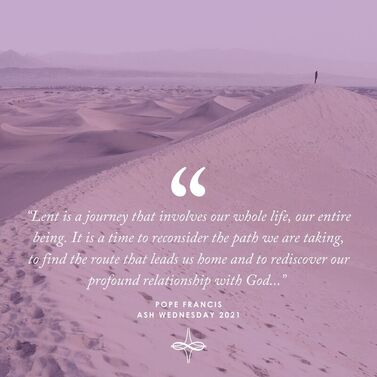
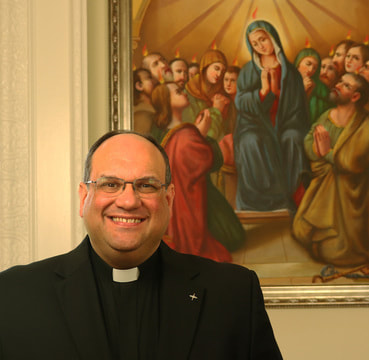
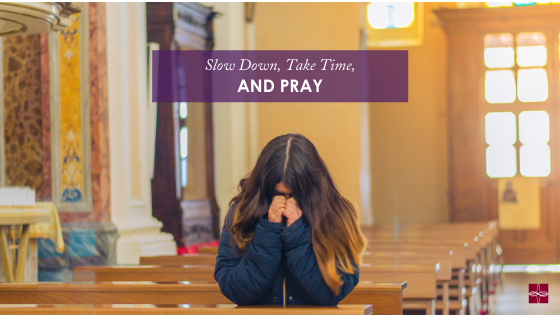



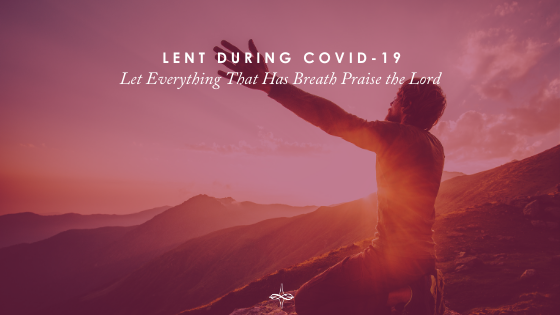
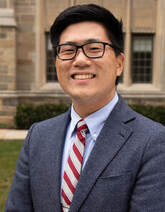
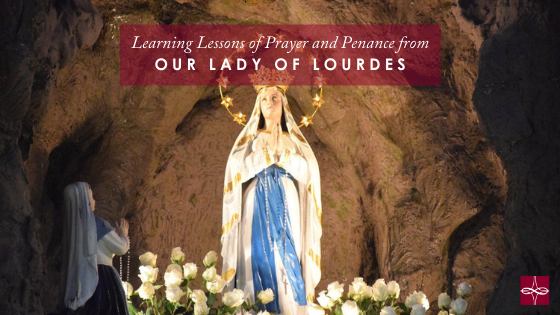

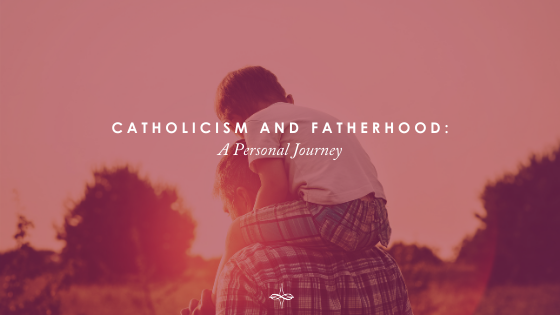
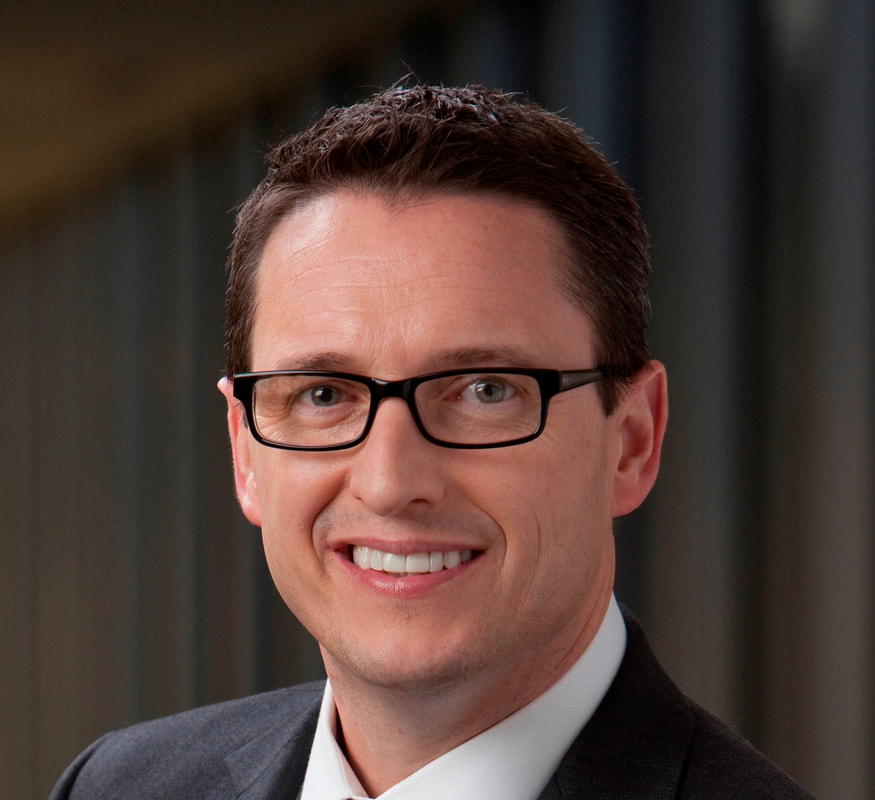
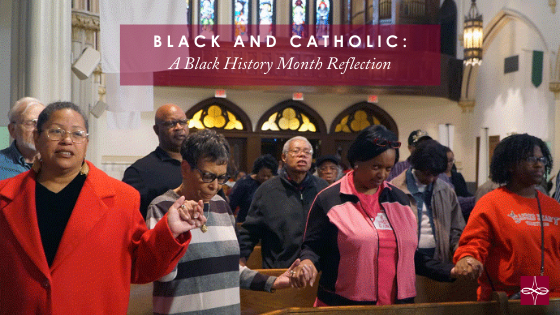
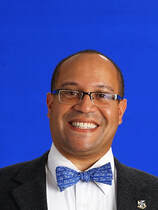
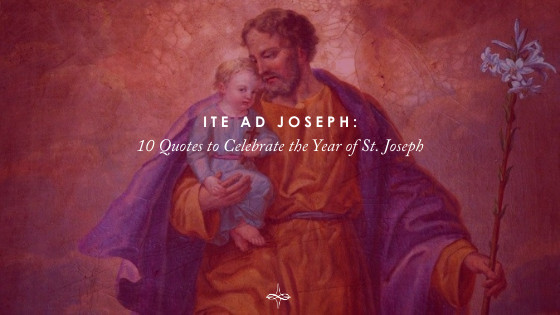

 RSS Feed
RSS Feed